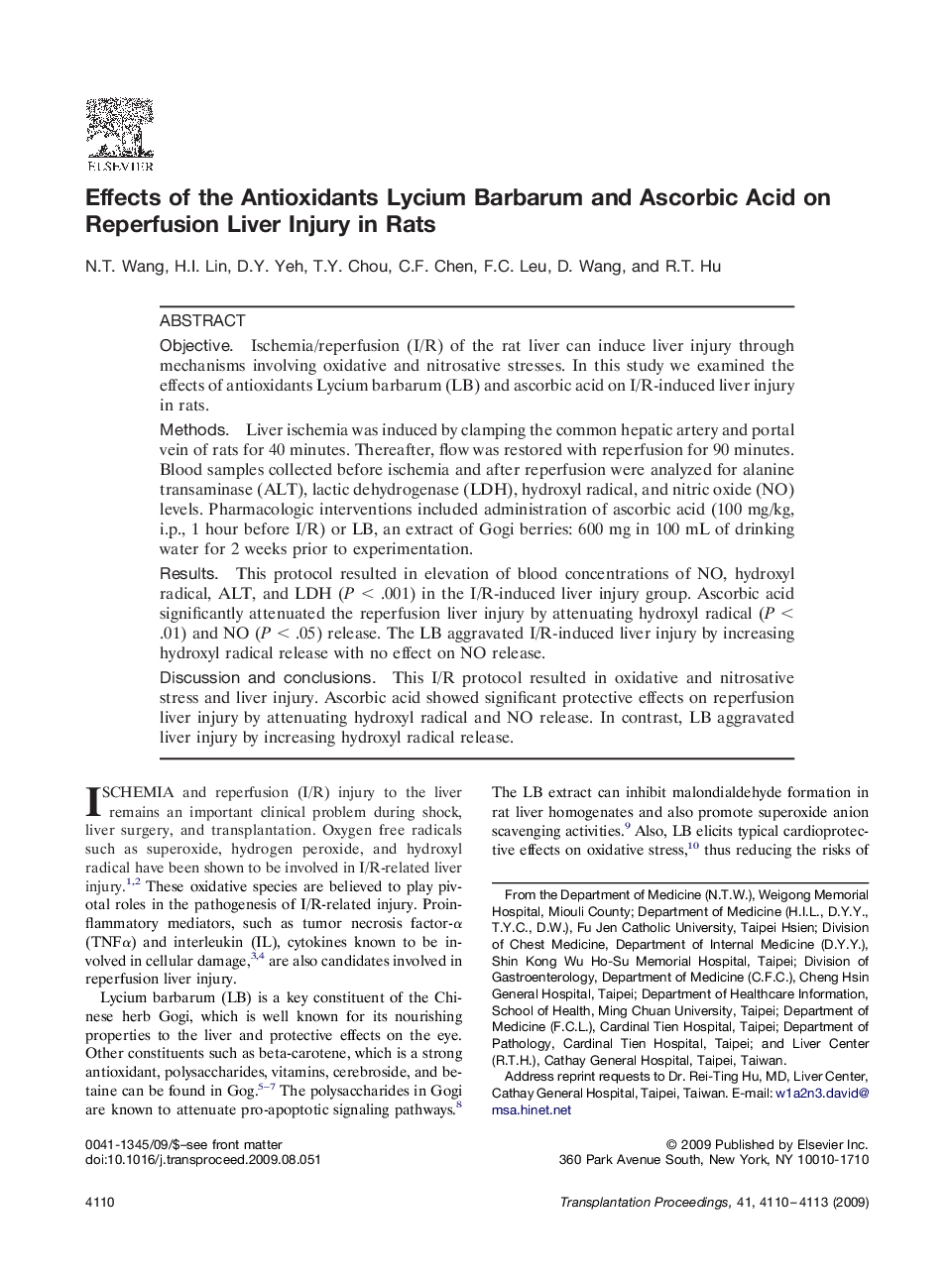| Article ID | Journal | Published Year | Pages | File Type |
|---|---|---|---|---|
| 4258470 | Transplantation Proceedings | 2009 | 4 Pages |
ObjectiveIschemia/reperfusion (I/R) of the rat liver can induce liver injury through mechanisms involving oxidative and nitrosative stresses. In this study we examined the effects of antioxidants Lycium barbarum (LB) and ascorbic acid on I/R-induced liver injury in rats.MethodsLiver ischemia was induced by clamping the common hepatic artery and portal vein of rats for 40 minutes. Thereafter, flow was restored with reperfusion for 90 minutes. Blood samples collected before ischemia and after reperfusion were analyzed for alanine transaminase (ALT), lactic dehydrogenase (LDH), hydroxyl radical, and nitric oxide (NO) levels. Pharmacologic interventions included administration of ascorbic acid (100 mg/kg, i.p., 1 hour before I/R) or LB, an extract of Gogi berries: 600 mg in 100 mL of drinking water for 2 weeks prior to experimentation.ResultsThis protocol resulted in elevation of blood concentrations of NO, hydroxyl radical, ALT, and LDH (P < .001) in the I/R-induced liver injury group. Ascorbic acid significantly attenuated the reperfusion liver injury by attenuating hydroxyl radical (P < .01) and NO (P < .05) release. The LB aggravated I/R-induced liver injury by increasing hydroxyl radical release with no effect on NO release.Discussion and conclusionsThis I/R protocol resulted in oxidative and nitrosative stress and liver injury. Ascorbic acid showed significant protective effects on reperfusion liver injury by attenuating hydroxyl radical and NO release. In contrast, LB aggravated liver injury by increasing hydroxyl radical release.
